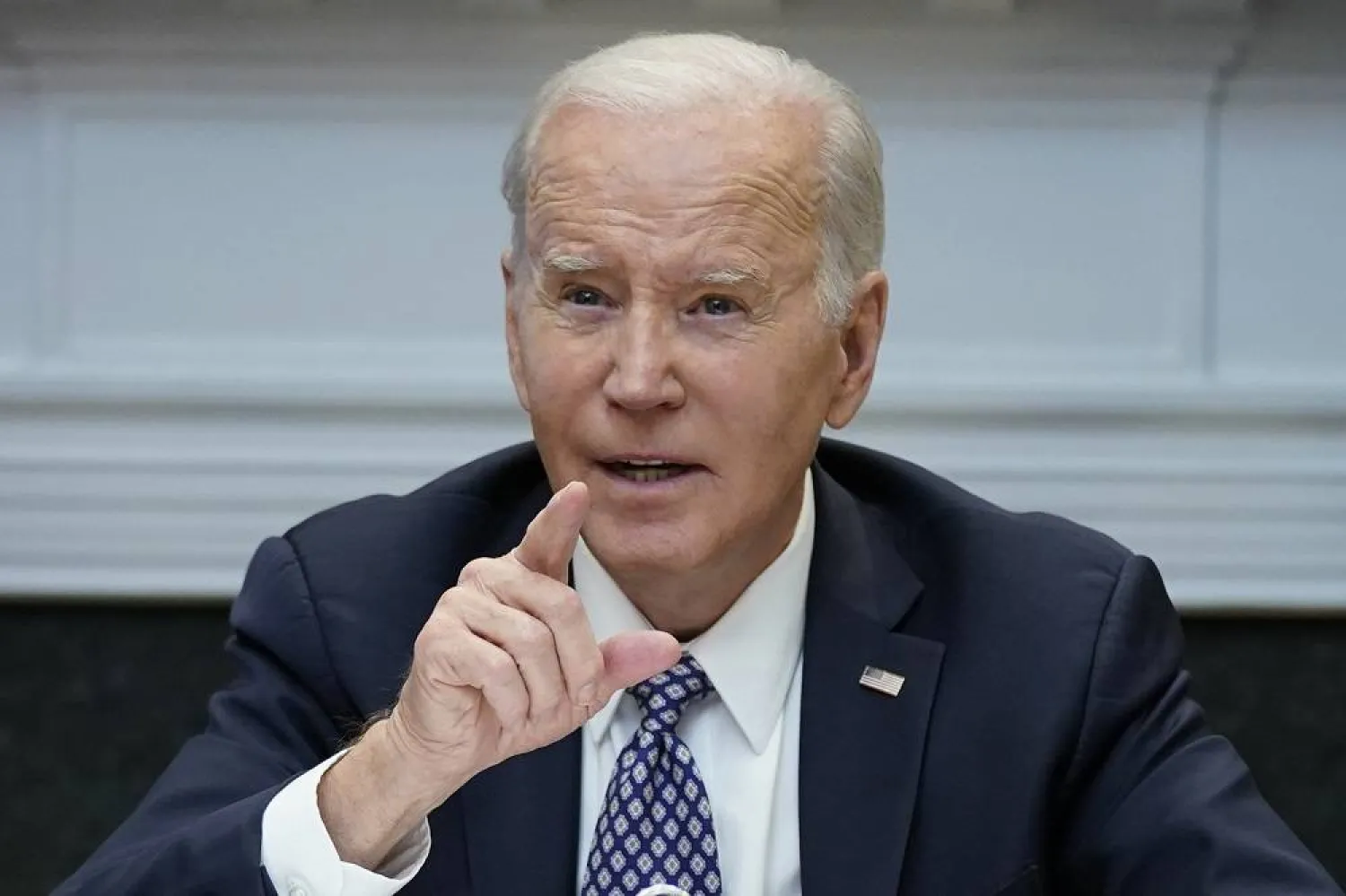US President Joe Biden will use what aides are billing as a major speech on Wednesday to lift Americans' dour mood about the economy, hoping to shore up his key political weakness as he seeks re-election.
Biden, whose two-year term as president has witnessed a sharp rebound from the COVID-19 induced recession, has nonetheless watched his public approval ratings sag under the weight of voter anxieties about inflation and the knock-on effects of spiking interest rates on the direction of the economy.
The US president will attempt to re-introduce his vision of middle-class American prosperity during a speech in Chicago.
The philosophy includes taxing the wealthy to invest in areas critical to national security, including semiconductors; educating workers; and improving economic competition, according to aides who previewed the speech for reporters.
More than half - 54% - of Americans disapprove of how Biden is handing his job, while just 35% of respondents approved of his stewardship of the economy, according to a Reuters/Ipsos poll conducted earlier this month. Voters rate the economy as their top issue.
The US economy grew at a 1.3% annualized rate in the first quarter and unemployment was at 3.7% in May, when inflation rose at a 4% year-over-year rate.
White House aides see those inflation figures as elevated but headed in the right direction under Biden-backed policies designed to reduce deficit spending and lower costs on a range of products from insulin to concert tickets.
Federal Reserve officials have said they think they have "a long way to go" to get inflation back down to healthy levels and may need to raise borrowing costs more, which could cause a recession.
Aides are using the term "Bidenomics" to capture the Democratic president's approach, drawing a contrast with the tax-cutting ethos once called "Reaganomics" for its affiliation with Republican former President Ronald Reagan, who left office in 1989.
"The president vowed to put in place a very different approach - (an) approach that grows the economy from the middle out and the bottom up," said Lael Brainard, director of Biden's National Economic Council.
Whether his message will break through is an open question. The summertime afternoon speech comes ahead of the July Fourth holiday, 16 months before voters head to the polls and as Republicans sort through a large field of possible candidates led by former President Donald Trump.
Biden's last major address to the nation, a June 2 Oval Office speech trumpeting a bipartisan deal to end the debt limit crisis, drew an audience of just 6.2 million people and was only picked up by two of the major US broadcast networks, according to research firm Nielsen.
Trump has made inflation a key element of his attacks on Biden in the early months of the race.
"Americans are worse off under Biden," said Republican National Committee chairwoman Ronna McDaniel in a statement. "Prices continue to skyrocket, and hardworking Americans pay the price for failed 'Bidenomics.'"
Biden, 80, is also expected to attend a fundraising event while he is in the Chicago area ahead of a deadline for federal fundraising records. He is not expected to face a serious fight for his party's nomination.









